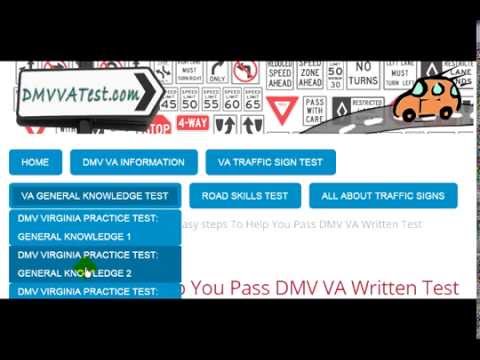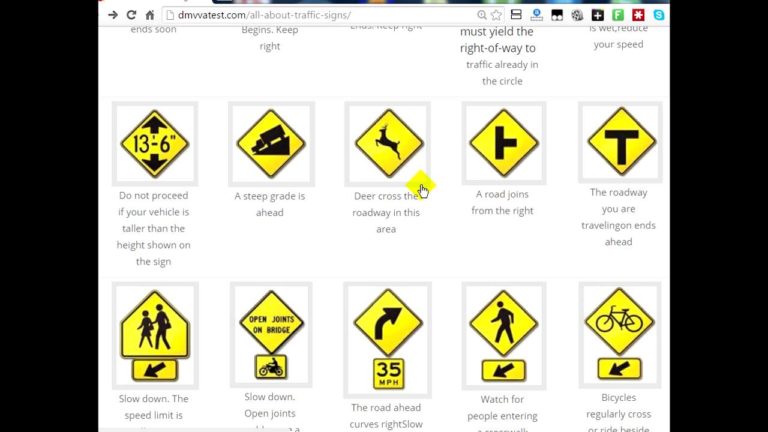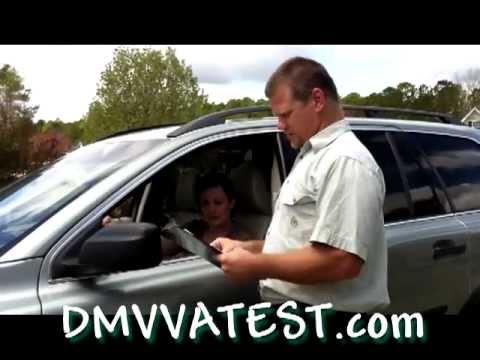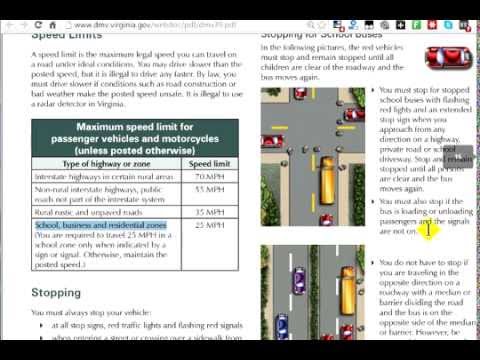On the Road: Navigating the Virginia Driving Test
Are you ready to embark on your journey towards obtaining a driver’s license in Virginia? The road test is a crucial step in the process, assessing your driving skills and ability to navigate the roads safely. In this helpful guide, we’ll take you through the requirements, preparation tips, common mistakes to avoid, and essential guidelines for a successful road test in Virginia. Let’s get started!
Understanding the Requirements
Before taking the road test, it’s important to meet the necessary requirements set by the Virginia Department of Motor Vehicles (DMV). To be eligible, you must be at least 16 years old and hold a valid learner’s permit for a specific duration determined by the DMV. Ensure you fulfill these prerequisites before scheduling your road test.
Preparing for Success
Proper preparation is key to performing well on the road test. Start by studying the Virginia Driver’s Manual, which contains valuable information about traffic laws, road signs, and safe driving practices. Additionally, spend ample time practicing your driving skills in various traffic situations such as merging, parking, changing lanes, and making turns. Consider conducting mock road tests with a licensed driver to simulate the actual testing conditions.
Common Mistakes to Avoid
During the road test, it’s crucial to steer clear of common mistakes that can lead to deductions or failure. Avoid forgetting to signal, neglecting proper observation of your surroundings, speeding, and improper lane positioning. Stay attentive, follow traffic rules, and maintain control of your vehicle to demonstrate your driving competence.
Essential Guidelines for Success
To increase your chances of success, here are some essential guidelines to follow during the road test:
Arrive at the testing location early, bringing all the required documents and fees as specified by the DMV.
Ensure your vehicle is in good working condition by checking tires, lights, brakes, mirrors, and other essential components before the test.
Stay calm and confident during the test, focusing on safe and accurate driving. Observe traffic rules, check mirrors frequently, use turn signals appropriately, and maintain a consistent speed.
Is It Necessary To Bring Your Own Car For A Driving Test In Virginia?
Comprehensive Guide to Passing the Virginia Road Test
Your Journey to Success
By understanding the requirements, preparing effectively, avoiding common mistakes, and following essential guidelines, you can navigate the road test in Virginia successfully. Keep practicing, stay focused, and remember to maintain a defensive driving mindset. Passing the road test brings you one step closer to obtaining your driver’s license and enjoying the freedom of the open road.
Now that you have the knowledge and insights to navigate the Virginia driving test, buckle up and embark on your journey with confidence. Safe travels!
Frequently Asked Questions
Q: How long does the road test in Virginia typically take?
A: The duration of the road test can vary depending on various factors, but it generally lasts around 15 to 20 minutes.
Q: What happens if I fail the road test in Virginia?
A: If you fail the road test, you can schedule a retest after a specific waiting period, usually within a few weeks. Use this time to practice and improve your skills.
Q: Can I use my own vehicle for the road test?
A: Yes, you can use your own vehicle for the road test in Virginia, provided it meets the required safety standards and has valid registration and insurance.
Q: Are there any specific maneuvers I should practice for the road test in Virginia?
A: Yes, you should practice maneuvers such as parallel parking, perpendicular parking, and three-point turns. These are commonly evaluated during the road test in Virginia, so it’s important to be proficient in them.
Q: Is the road test in Virginia difficult to pass?
A: The difficulty of the road test in Virginia can vary depending on your level of preparation and driving skills. With proper studying, practice, and adherence to traffic rules, you can increase your chances of passing the road test successfully.
Q: Can I reschedule the road test if I am unable to attend on the scheduled date?
A: Yes, you can reschedule the road test if you are unable to attend on the scheduled date. Contact the DMV or visit their website to check the specific rescheduling procedures and any applicable fees.
Q: How soon can I schedule a road test after obtaining my learner’s permit in Virginia?
A: The specific waiting period before scheduling a road test after obtaining your learner’s permit in Virginia can vary. Refer to the DMV’s guidelines or website for the minimum duration required before you become eligible for the road test.
Q: What should I do if I encounter an unexpected situation or make a mistake during the road test?
A: If you encounter an unexpected situation or make a mistake during the road test, it’s important to stay calm and continue driving safely. Make the necessary corrections if possible and focus on completing the remaining portions of the test to the best of your ability.
Q: Are there any additional resources or practice materials available to help me prepare for the road test in Virginia?
A: Yes, the Virginia DMV provides additional resources and practice materials to help you prepare for the road test. These resources may include online practice tests, study guides, and instructional videos. Visit the DMV’s website or contact your local DMV office for more information.
Q: What are the consequences of committing a major error during the road test in Virginia?
A: Committing a major error during the road test in Virginia can result in an automatic failure. Major errors may include causing a collision, violating traffic laws, or exhibiting unsafe driving behavior. It’s important to drive attentively and follow all instructions to avoid major errors.
Q: Can I bring a friend or family member to accompany me during the road test in Virginia?
A: Generally, you cannot bring a friend or family member to accompany you during the road test in Virginia. Only the examiner and the person taking the test are allowed in the vehicle to ensure a distraction-free environment.
Q: Are there any specific tips for managing test anxiety during the road test in Virginia?
A: To manage test anxiety during the road test in Virginia, practice relaxation techniques such as deep breathing and positive visualization. Remind yourself of your preparation and skills. Focus on the road and follow instructions. Confidence and a calm mindset can help alleviate test anxiety.
Q: Can I request an interpreter to assist me during the road test if English is not my first language?
A: If English is not your first language, you may be allowed to have an interpreter present during the road test in Virginia. However, it’s important to contact the DMV beforehand to inquire about their policies, requirements, and any necessary documentation.
Q: Is there a minimum score or passing criteria for the road test in Virginia, or is it a pass/fail evaluation?
A: In Virginia, the road test is typically evaluated on a pass/fail basis. There isn’t a specific minimum score requirement. To pass, you must demonstrate sufficient driving skills and meet the criteria set by the DMV, including adhering to traffic laws, maintaining control of the vehicle, and following instructions accurately.
Remember, the road test in Virginia is designed to assess your driving skills and ensure that you can safely navigate the roads. By being well-prepared, confident, and focused, you can increase your chances of passing the road test and obtaining your driver’s license. Good luck on your journey!
Resource 1: DMV Virginia – http://www.dmvNOW.com




